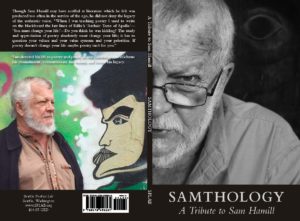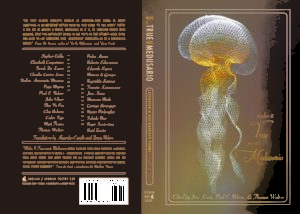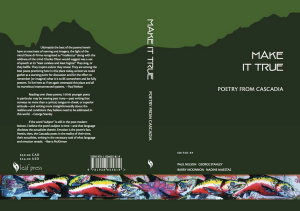We’re turning SPLAB over to a collective, a poetic commons, a City of Poets. With the exception of two dates in the Fall, the 2012/2013 SPLAB season is yours to design. It requires a commitment, but that’s to be determined. We want to stick with writers and our bias is poets. We want folks who want to grow in their own work. Please bring a short poem for the Living Room at SPLAB, 7PM on Tuesday, January 31, and come to tell us how you’d like to see SPLAB evolve; what project you have dreamed of doing with poets. We’ll suspend critique for the evening.
SPLAB is at 3651 S Edmunds in the former Columbia School. Just off Metro’s 7 or 8, a couple of blocks from the Columbia City Link Light Rail station with plenty of free parking, join the commons. We’ll also talk about Cascadia.

About Splabman
Poet & interviewer Paul E Nelson founded SPLAB (Seattle Poetics LAB) & the Cascadia Poetry Festival. Since 1993, SPLAB has produced hundreds of poetry events & 600 hours of interview programming with legendary poets & whole systems activists including Allen Ginsberg, Michael McClure, Joanne Kyger, Robin Blaser, Diane di Prima, Daphne Marlatt, Nate Mackey, George Bowering, Barry McKinnon, José Kozer, Brenda Hillman & many others. Paul’s books include American Prophets (interviews 1994-2012) (2018) American Sentences (2015) A Time Before Slaughter (2009) and Organic in Cascadia: A Sequence of Energies (2013). Co-Editor of Make It True: Poetry From Cascadia (2015), 56 Days of August: Poetry Postcards (2017) and Samthology: A Tribute to Sam Hamill (2019) Make it True meets Medusario (2019), he’s presented poetry/poetics in London, Brussels, Nanaimo, Qinghai & Beijing, China, has had work translated into Spanish, Chinese & Portuguese & writes an American Sentence every day. Awarded a residency at The Lake, from the Morris Graves Foundation in Loleta, CA, he’s published work in Golden Handcuffs Review, Zen Monster, Hambone, and elsewhere. Winner of the 2014 Robin Blaser Award from The Capilano Review, he is engaged in a 20 year bioregional cultural investigation of Cascadia and lives in Rainier Beach, in the Cascadia bioregion’s Cedar River watershed.




